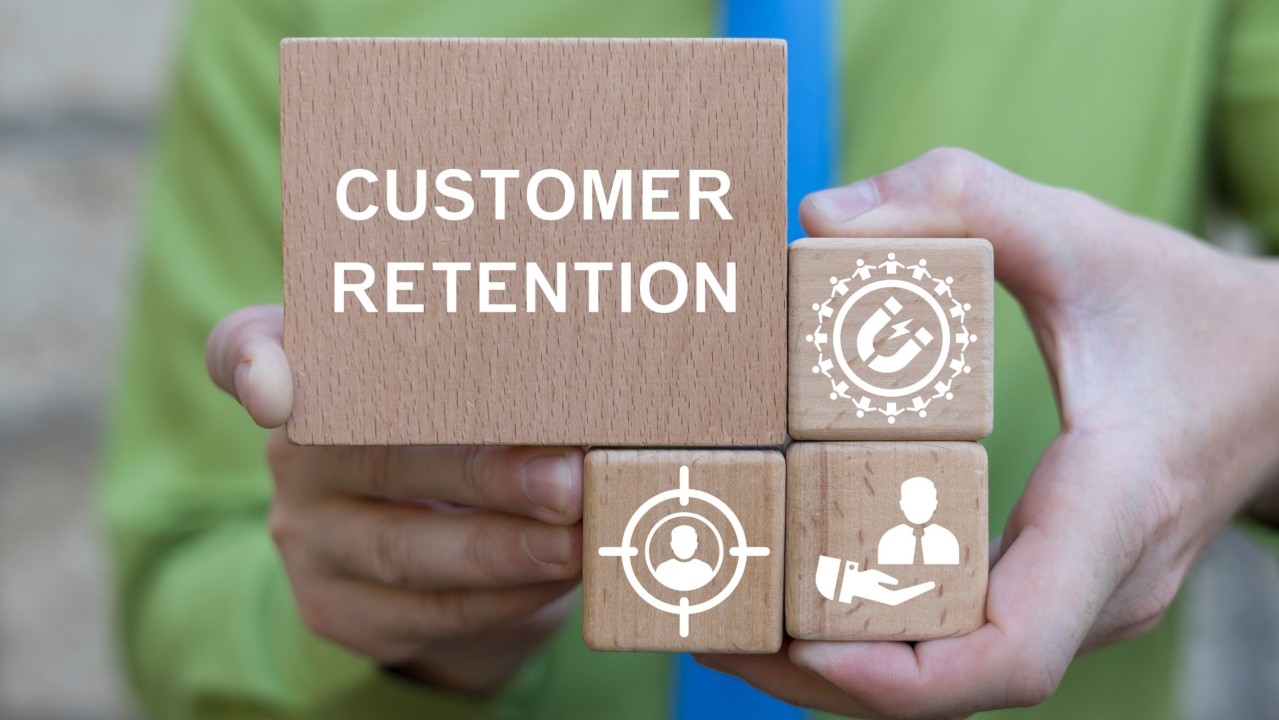News
AI Assistants (Chatbots): The Future of Customer Interaction in Digital Marketing
In the dynamic realm of digital marketing, where trends evolve at a dizzying pace and customer expectations continually rise, one technological innovation stands out for its transformative potential: the chatbot. These AI-driven conversational agents are not only revolutionising the way businesses interact with their customers but are also reshaping the entire landscape of digital marketing.
From enhancing customer service to driving sales and personalising user experiences, chatbots are becoming indispensable tools for businesses striving to stay ahead in a competitive marketplace.
The Rise of Chatbots in Digital Marketing
The concept of chatbots is not entirely new; however, their capabilities have dramatically expanded with advancements in artificial intelligence (AI) and natural language processing (NLP). Today’s chatbots can understand and respond to human language with remarkable accuracy, enabling them to engage in meaningful conversations with users.
In the UK, the adoption of chatbots has seen significant growth. According to a report by Juniper Research, it is estimated that by 2024, chatbots will save businesses over £6 billion annually in customer service costs. This statistic underscores the growing reliance on chatbot technology as companies seek to streamline operations and enhance customer engagement.
Enhancing Customer Service
One of the most prominent applications of chatbots in digital marketing is in customer service. Traditionally, customer service has been a labour-intensive process, often plagued by long wait times and inconsistent service quality. Chatbots offer a solution by providing instant, 24/7 support, ensuring that customers receive timely assistance regardless of when they reach out.
Chatbots can handle a wide range of customer queries, from answering frequently asked questions to assisting with product recommendations and processing returns. For instance, when a customer visits a website looking for a specific product, a chatbot can immediately engage with them, helping them navigate the site, providing information on products, and even suggesting complementary items. This level of personalised assistance not only improves the customer experience but also increases the likelihood of a purchase.
Driving Sales and Conversions
In addition to enhancing customer service, chatbots are powerful tools for driving sales and conversions. By leveraging AI and data analytics, chatbots can deliver personalised product recommendations based on a user’s browsing history, preferences, and previous interactions with the brand. This level of personalisation is critical in today’s digital marketing landscape, where customers expect brands to understand and cater to their individual needs.
Consider the example of a fashion retailer using a chatbot to assist customers. When a customer expresses interest in a particular dress, the chatbot can suggest matching accessories, inform the customer of current promotions, and even help with sizing questions. By providing this tailored shopping experience, chatbots can significantly boost sales and enhance customer satisfaction.
Moreover, chatbots can be integrated with social media platforms, allowing businesses to reach customers where they are most active. For instance, a chatbot on Facebook Messenger can engage users in conversations, promote products, and even facilitate purchases without requiring the user to leave the app. This seamless integration with social media enhances the convenience of shopping and increases the likelihood of conversions.
Personalisation and User Engagement
Personalisation is a key driver of customer engagement in digital marketing, and chatbots excel in this area. By analysing user data, chatbots can deliver highly relevant content and recommendations, creating a more engaging and enjoyable user experience. For example, a chatbot for a news website can provide personalised news updates based on a user’s interests and reading habits, ensuring that the content is always relevant and engaging.
Furthermore, chatbots can be programmed to reflect the brand’s voice and personality, creating a more cohesive and immersive brand experience. This level of personalisation helps build stronger relationships with customers and fosters brand loyalty.
In the UK, where digital marketing competition is fierce, personalisation is particularly crucial. According to a study by Epsilon, 80% of consumers are more likely to make a purchase when brands offer personalised experiences. By leveraging chatbots to deliver these tailored interactions, businesses can gain a significant competitive advantage.
Data Collection and Analysis
Another significant benefit of chatbots in digital marketing is their ability to collect and analyse vast amounts of data. Every interaction with a chatbot provides valuable insights into customer behaviour, preferences, and pain points. This data can be used to inform marketing strategies, optimise campaigns, and improve product offerings.
For instance, if a chatbot frequently receives questions about a particular product feature, this information can highlight areas where additional product education or improvements are needed. Similarly, analysing chatbot interactions can reveal trends in customer preferences, helping businesses to better anticipate and meet their customers’ needs.
In addition to providing insights into customer behaviour, chatbots can also help track the effectiveness of marketing campaigns. By monitoring engagement metrics, such as click-through rates and conversion rates, businesses can assess the impact of their chatbot interactions and make data-driven adjustments to their strategies.
Cost Efficiency and Scalability
One of the most compelling advantages of chatbots is their cost efficiency. Implementing a chatbot is significantly more affordable than maintaining a large customer service team, and chatbots can handle an unlimited number of interactions simultaneously. This scalability is particularly beneficial for businesses experiencing rapid growth or seasonal spikes in demand.
For small and medium-sized enterprises (SMEs) in the UK, which may not have the resources to invest in extensive customer service infrastructure, chatbots offer a cost-effective solution for providing high-quality support. By automating routine tasks and queries, chatbots free up human agents to focus on more complex and value-added interactions, improving overall efficiency and productivity.
Challenges and Considerations
While the benefits of chatbots are substantial, it is important to acknowledge the challenges and considerations associated with their implementation. One of the primary challenges is ensuring that chatbots are sufficiently sophisticated to handle complex queries and provide accurate, helpful responses. Poorly designed chatbots can lead to frustration and dissatisfaction among users, negating the benefits of the technology.
To mitigate this risk, businesses must invest in high-quality chatbot development and continuously monitor and refine their chatbot interactions. This may involve integrating advanced AI and machine learning capabilities, as well as regularly updating the chatbot’s knowledge base to reflect new information and changes in customer preferences.
Another consideration is the importance of maintaining a human touch in customer interactions. While chatbots are highly effective for handling routine queries and transactions, there are situations where human intervention is necessary. For example, complex or sensitive issues may require the empathy and understanding that only a human agent can provide. Therefore, businesses should implement a seamless handoff process, where chatbots can escalate interactions to human agents when needed.
The Future of Chatbots in Digital Marketing
As AI and NLP technologies continue to advance, the capabilities of chatbots will only expand, making them even more integral to digital marketing strategies. In the future, we can expect chatbots to become more conversational and context-aware, enabling them to engage in more natural and dynamic interactions with users.
One exciting development on the horizon is the integration of chatbots with voice assistants and smart speakers. This convergence will enable businesses to reach customers through voice-activated devices, creating new opportunities for engagement and sales. For instance, a customer could ask their smart speaker for product recommendations, and a chatbot could provide personalised suggestions and facilitate a purchase, all through voice commands.
Another emerging trend is the use of chatbots for proactive customer engagement. Rather than waiting for customers to initiate interactions, chatbots can reach out with personalised offers, reminders, and follow-ups, enhancing the overall customer experience and driving loyalty. For example, a chatbot could remind a customer of an upcoming appointment, suggest products based on their previous purchases, or offer exclusive discounts to encourage repeat business.
In the UK, where digital adoption is high, and consumers are increasingly comfortable with AI-driven interactions, the potential for chatbots is immense. According to a survey by Oracle, 80% of businesses plan to use chatbots by 2024, reflecting the growing recognition of their value in enhancing customer engagement and driving business growth.
Chatbots represent the future of customer interaction in digital marketing, offering a multitude of benefits from enhanced customer service and personalised experiences to cost efficiency and valuable data insights. As technology continues to evolve, the capabilities of chatbots will only expand, making them even more integral to the digital marketing strategies of businesses across the UK and beyond.
For businesses looking to stay ahead in a competitive landscape, investing in chatbot technology is no longer optional but essential. By leveraging the power of AI and data analytics, chatbots can help businesses build stronger relationships with their customers, drive sales, and achieve greater efficiency and scalability. In an era where customer expectations are higher than ever, chatbots offer a powerful tool for delivering exceptional experiences and achieving lasting success in digital marketing.





The Ultimate Social Media Guide
With the ever-growing power of social media, we use the latest techniques, video, and animation software to craft eye-catching social media assets that make your brand pop. Our designers, wielding Adobe Creative tools, create distinctive animations and graphics to illuminate your brand story and highlight your products or services. Want a unique design? No problem – we also offer bespoke designs to match your brand aesthetic.